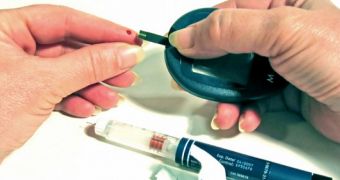A team of Northwestern University scientists have recently succeeded in transplanting insulin-producing cells collected from rats into mice.
They claim that, once inside the mice's bodies, the cells, dubbed islets, managed to survive despite the fact that the animals were not being given any immunosuppressive drugs.
Thus, their immune systems acted as if the rat cells belonged in the mice's bodies, and did not reject them.
This meant that the islets were left to do their job of controlling the animal's blood sugar levels.
“This is the first time that an interspecies transplant of islet cells has been achieved for an indefinite period of time without the use of immunosuppressive drugs. It’s a big step forward,” specialist Stephen Miller said.
“Our ultimate goal is to be able to transplant pig islets into humans, but we have to take baby steps. Pig islets produce insulin that controls blood sugar in humans,” one other researcher, Xunrong Luo, detailed on this project.

 14 DAY TRIAL //
14 DAY TRIAL //